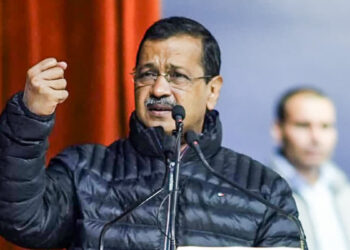The death of Ajith Kumar, a 27-year-old temple security guard in Tamil Nadu, has unleashed a wave of grief and fury, exposing deep flaws in the state’s law enforcement and governance under Chief Minister M.K. Stalin. This tragic incident, marked by allegations of custodial brutality, is not just a call for justice but a resounding demand for Stalin’s resignation and a complete overhaul of a system that has failed its people.
Ajith, employed as a temporary guard at the Madapuram Badrakaliamman Temple in Sivaganga district, was detained by police on June 28, 2025, over a theft allegation. A woman devotee reported that 80 grams of gold jewelry vanished from her car after Ajith, unable to drive due to his lack of experience, sought help to park it. What should have been a routine inquiry turned deadly. Ajith was briefly released after initial questioning but was detained again for further interrogation. His family alleges that during this second round, he was subjected to severe physical abuse—beaten, gagged, and forced to kneel for hours. Tragically, Ajith fell ill during questioning and was pronounced dead at a local hospital.
The aftermath has been explosive. Furious residents and Ajith’s relatives protested outside the Thiruppuvanam police station, demanding accountability. Sivaganga’s District Superintendent of Police, Ashish Rawat, suspended six officers and ordered an investigation, with Ajith’s body sent for a post-mortem to determine the cause of death. These measures, however, feel like a bandage on a festering wound. Tamil Nadu has witnessed over 25 custodial deaths since the Dravida Munnetra Kazhagam (DMK), led by Stalin, assumed power in 2021—a grim tally that points to systemic rot within the state’s police force.
The incident has ignited a fierce political storm. Opposition leader Edappadi K. Palaniswami of the All India Anna Dravida Munnetra Kazhagam (AIADMK) condemned the alleged brutality, demanding a judicial probe, compensation for Ajith’s family, and strict action against the officers involved. “Guilty or not, no one deserves police violence—only a court can decide,” he said, pointedly criticizing Stalin’s oversight of the police department. Pattali Makkal Katchi’s Anbumani Ramadoss went further, citing the state’s custodial death toll and calling for Stalin’s resignation. Even the DMK’s ally, the Communist Party of India (Marxist), labeled the incident a “custodial murder,” while the Bharatiya Janata Party’s Nainar Nagendran decried a “disturbing pattern of police brutality.”
This tragedy is more than a single failure—it is a damning indictment of Stalin’s administration. As head of the state’s home department, the Chief Minister is directly responsible for the police force’s conduct. Yet, under his watch, custodial violence has persisted, unchecked and unaddressed. Stalin’s silence on Ajith’s death—coupled with the absence of meaningful reforms—signals either apathy or incompetence, neither of which Tamil Nadu can afford. The state’s Human Rights Commission exists as a recourse, but its effectiveness is questionable when such incidents recur with alarming frequency.
Ajith Kumar’s death is a clarion call for change. Tamil Nadu’s people deserve a government that upholds justice, ensures accountability, and protects its citizens from the very forces meant to serve them. Stalin’s failure to address this crisis head-on disqualifies him from leadership. He must resign, paving the way for a government that will confront police excesses and restore public trust. The world is watching, and Tamil Nadu cannot let this moment pass without demanding—and achieving—real reform.





































